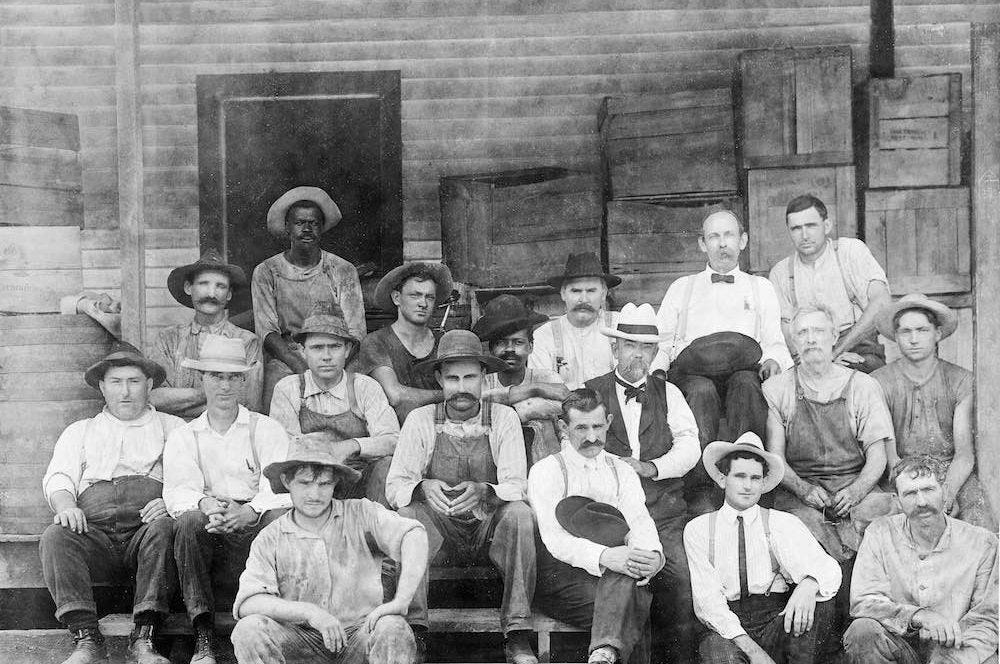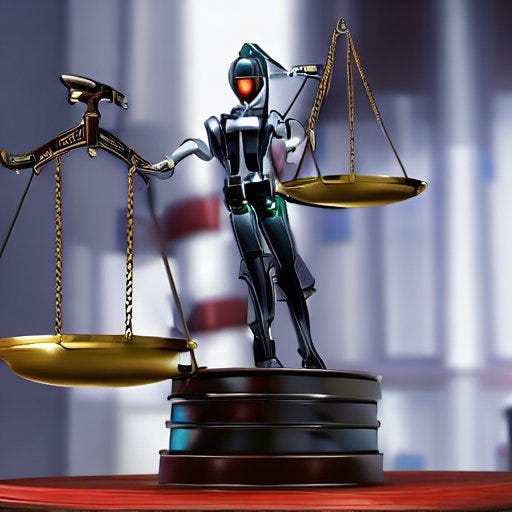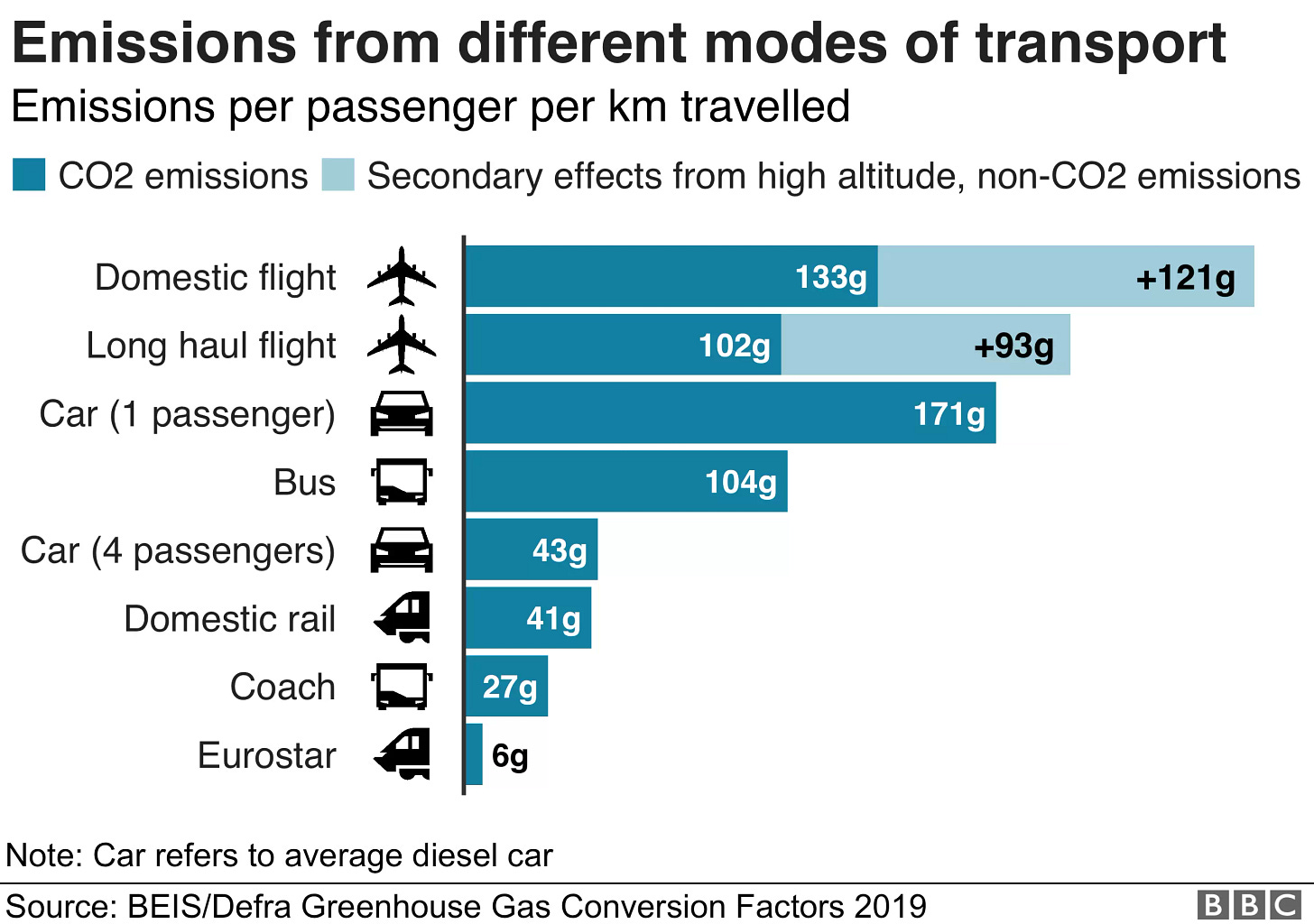This Week in Work: The Trillion-Dollar Image War
You had to know it was coming at some point, yeah?
Amid the AI-generated explosion that has thrown the entire concept of creativity into question in the public mind, image curation colossus Getty Images has filed a copyright infringement lawsuit against StableDiffusion, lead artist here On the Job.
The damages sought? Oh, just 1.8 trillion dollars…you know, one million million+800 billion dollars?
For context, it is estimated that the total available currency on Earth totals about $84 trillion, so for the purposes of this piece let’s assume that 2 percent of global money is a reasonable ask in this scenario.
The case is expected to take a while—wheels of justice grind slow, yaddayadda—and will likely rest on the US Supreme Court’s forthcoming reinterpretations of the “Fair Use Doctrine,” that legal structure that ensures that I can type the trademarked brand name “Sunny Delight” in the phrase “Sunny Delight tastes like citrus paint thinner.”
For the record, the Supreme Court seems as confused as everyone else about the Fair Use Doctrine, ruling only last week that an Andy Warhol painting of Prince stood in violation, a ruling which “raised more questions than answers” according to Reuters.
Now, according to conventional understandings of intellectual property, this might appear to be a clear-cut case. After all, there are the watermarks in the output, amusingly mangled into that acid-Cyrillic script often generated when existing text gets run through the synthesizer, but clear as day nonetheless.
…but see, the basic concept of the patent has always been super interesting to me.
Like, I mean, sure…Getty has the demonstrable legal right to these images, such as such rights can ever exist. After all, founder Mark Getty earned his family oil money fair and square, and so a widely accepted school of thought makes it perfectly logical for a private entity to own every 3rd image on the Internet.
Still, I often wonder what the world would look like if patents could have been tracked through history--the first fire-starter, the originator of garlic bread, the illustrious inventor of the pocket--and this is the closest thing I've ever seen to that thought being played out in court.
Yes, Henry Ford popularized the assembly line (and antisemitism in the US, but that’s for another newsletter) but did he also invent the screw? The lever? Discover combustion? I think you see what I’m getting at here.
Hell, the inventor of Jack Daniels couldn’t secure a trademark on Jack Daniels because he was busy being enslaved at the time. Whether you’re a drinker or not, you’ve heard of Jack Daniels…the Green family estate lost out on a bit of passive income there.
All that typed, intellectual property laws have certainly helped make some people—even creatives just like me!—extraordinarily rich and powerful. That’s kinda cool! There’s certainly merit in the idea of incentivizing human inspiration…hell, it’s why I started a Substack.
However, IP has also caused tremendous progress to get wrapped up in red tape…not only can you ask any American diabetic all about that, but for historical perspective we can also look to the Wright Brothers. You know about the one thing they did, but the other thing they did was spend the next decade-plus trying to prevent anyone else from ever making an aircraft of their own.
One of the brothers actually died trying.
The only thing that allowed the flying machine to take the long flight from the mind of a bird-watching monkey through the dreams of DaVinci to the impatient and entitled sky tube passengers of today was a whole-ass World War.
That’s kinda not cool.
So when I think about the concept of intellectual property, I can’t help but think about how we even arrived at this point. Once upon a time some likely-illiterate shepherd kept track of his sheep with a handful of rocks, transferring them individually from one hand to the other to correspond to each of them entering or leaving the pen. Then math was invented, now there’s a flag on the Moon.
Ancient Farm Boy had some small thing to do with that.
And so, turning back to today’s topic, how can we definitively determine the ownership of an image, which can be so easily altered, copied, enhanced, defaced, or tattooed? How much sharpening of a resource must an individual do before it becomes a product? How much of anything is made of everything else?
I’ll be keeping a close eye on this case…it could go a long way toward a satisfactory answer to these many many questions.
…but probably not.
Maybe Update Your Resume: Legal Assistant (plus maybe one specific lawyer)?
By now we’ve all heard about GPT-4 outperforming law students on the US Bar Exam, offering a glimpse of the future of costless labor in the legal profession.
However, in the ambitious view of a particular New York lawyer, the future is now. Stephen A. Schwartz, a (currently) practicing attorney with over 30 years in law, turned to ChatGPT to help represent a client in a personal injury case…with mixed results.
The resulting documents included what is called AI’s “hallucinations,” which most laypeople refer to as “bullshit.” Indeed, a total of six entirely fabricated citations appeared in the brief. It’s all good to creatively interpret the truth as a lawyer, this is the bedrock of the vocation. Not so much when anyone in the room can easily disprove your contentions on a factual basis.
Now, was it ill-advised to just copy and paste the chatbot’s findings into the brief? Of course. This is why we always cross-check our sources…if you can’t find more than one reputable resource saying something, odds are it’s not true.
Still, the message here is very clear: every business is looking to eliminate all but the most essential labor costs, and the legal arena is no different.
What might have been a team of clerks and paralegals poring over documents for weeks on end in preparation for a case can now be trimmed down to one fact-checker (maybe even an intern!) that will filter out any completely unsubstantiated nonsense.
For the unforgivable sin of getting caught cheating, Schwartz faces censure and possible disbarment. 10 minutes with the Mighty Manual Searchbox could have probably saved him even this trouble, but sometimes our purpose in life is as a cautionary tale.
Stephen A. Schwartz fell on his face so the next generation of lawyers could walk, and they will have him to thank for his pioneering endeavours.
Talent Visa Tracker: Uruguay
Joining the dozens of countries looking to amplify their domestic capabilities by reaching out for talented immigrants, Uruguay has rolled out a digital nomad visa program in the wake of the remote work revolution.
The program, aimed at remote workers and other people looking to live out their retiree dreams during their work career (since they may not be otherwise forthcoming), allows workers to apply for a visa from within the country.
A digital nomad visa provides six to twelve months’ residency in Uruguay to anyone with a clean criminal background and a valid passport. Applicants must hold active employment, but with no minimum income requirement the definition thereof is open to creative interpretation…the kind writers specialize in.
The small South American nation, nestled between continental giants Argentina and Brazil, has had a history of hard-earned triumph, seizing civilian control of the government from the military as recently as 1985, but is today ranked first in the Americas for democratic freedom.
Unlike less developed nations, Uruguay ranks highly on “social issues” such as “the right to like whoever you want” and “complete medical care for women.” The country has also legalized cannabis at the federal level, so that’s pretty sweet.
When such victories are achieved in living memory, appreciation for them endures…and so instead of responding to the challenges of our time by crawling back into the cave, Uruguay has opened its national arms to newcomers from abroad, its historical diversity providing the kind of platform engineered to deliver soft landings for all.
It also has a pretty cool flag, which is always worth bonus points.
Honestly this is a Top 5 consideration in my own mind. Some familiarity with Spanish, the national language of Uruguay, will certainly go a long way in getting established in everyday life. After spending the better part of the last decade in Mexíco, puedo hablar el idioma mas o menos, pero alguien que viven en ciudades como Chicago o LA should pick out phrases just fine.
Overall, you could definitely do worse if you’re looking to take full advantage of the location independence that has blossomed from the modern employment environment.
Hope Spot: A Nation On Track, Kinda
Finally, we finish up this week with a welcome dose of common sense public policy from France, where flights that could be served by a high-speed rail route under 2.5 hours have been banned within the country’s borders.
Credited to the efforts of President Macron’s Citizens' Convention on Climate—it is a President’s job to take credit, after all—naturally the law was somewhat diluted from its original intent because the thought of remaining on a train for four hours struck fear into the collective French heart.
On the bright side, here is a direct acknowledgement from a brand-name European government that our current concept of travel is not only unsustainable, but borderline suicidal as a species. Why on Earth would you voluntarily multiply the damage your leisure activities do to the planet we all share?
That doesn’t make any fucking sense.
In the unfathomable darkness of climate breakdown denial, such relatively tangible action is a thin ray of sunlight beckoning through a distant door. Other wealthy nations would bolster their own lot by adopting similar measures…after all, global weather patterns don’t take national territories nearly as seriously as the Very Serious People who make Very Serious Decisions do.
You really have to squeeze hope out these days.













